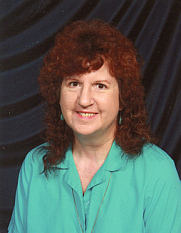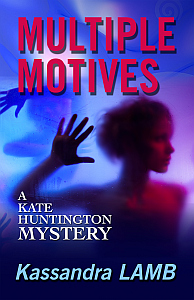We’ve probably all heard the advice to create book series for better sales. We don’t hear nearly as much about the other end of equation: ending a series.
Series that go on too long can receive bad reviews, as every book feels the same. Or readers can get upset with the author, thinking they’re milking the series for money, especially if the overall series arc feels dragged out. Or readers might abandon a series—and the author—if they start seeing the stitches of bad ideas or sloppy writing.
I’ve even seen several series lose readers because to force it to continue after a natural end point, the author had to shift the genre. Readers were no longer getting what they’d come for, so they had no reason to stay.
Series that don’t end well don’t deliver to readers, whether that means failing to deliver the expected writing quality, series arc development, character arc development, unique story ideas, genre promise, value for the money, etc. Whatever the details, the risk for ending a series badly is: Readers don’t get what they want from our books.
Authors can end up with a bad reputation—potentially losing those readers forever, even with a different series—if they don’t handle the end of a series well. Faced with this issue in her series, long-time guest poster Kassandra Lamb is here to walk us through some of the issues we need to keep in mind when it comes to ending a series, with tips on both when and how we should end a series.
Please welcome Kassandra Lamb! *smile*
*****
When (And How) To End A Series?
I’m currently writing Book 9—what I thought would be the last book—in my Kate Huntington Mystery series (Note to my readers: don’t panic; I think I’ve changed my mind—more on this in a bit).
When a writer sets out to write a series, often there’s no set number of books in mind. The vague thought is that we’ll keep writing as long as readers are reading and we’re still coming up with story ideas.
But everything has to come to an end some time.
When Should We End a Series?
When should a writer stop a series? Here are my thoughts on possible reasons to say “the end,” based on my own ruminations about winding down the Kate series:
- You’ve fulfilled the purpose/fully explored the overarching theme of the series.
Just as a story has an arc and characters have arcs, a series should have an arc. Since I’m a pantser, these arcs tend to reveal themselves to me over time.
Kate started out, in Book 1, as a fairly together thirty-something with a near-perfect life, which is ripped apart and turned upside down by a relentless killer. As the series progressed, the overall theme became: even together people have to deal with the uncertainties that life throws at them—they have challenges to overcome, develop anxieties and even neuroses that they have to struggle to resolve, etc. In other words, we can’t control what happens to us, only how we deal with it.
But as one of my reviewers put it, “How many bodies can one woman stumble over?”
The obvious answer is this is fiction and a mystery series, so bodies happen. But the reviewer has a point. My protagonist has had a lot more than her share of challenges. It’s feeling like it’s time to let the poor woman relax a bit in her (hopefully corpse-free) golden years. The series arc is bending down toward the end.
- You’ve run out of story ideas that fit that protagonist and his/her world. Or the story ideas that come to mind feel flat to you.
This was the biggest reason I was considering ending the series with Book 9. Whereas before I had more story ideas than I had time to pursue, I now was drawing a total blank. Then I went to a conference, and in a rather round-about way, ended up with an idea for Book 10. But beyond that, Kate’s future is murky.
- Your own interest in/enthusiasm for the series is waning.
The last two books have been harder to write. I didn’t really get “in” to them until the editing process. As I edit the current one I’m definitely getting more excited; it’s a good story and I’m looking forward to seeing it published. But even there, my excitement on a scale of 1-10 is now a 7 where with earlier books, it was a 10. (The new idea for Book 10 is currently about an 8.5.)
As a reader, I can usually tell when a writer is losing interest in a series. I read a book a while back by one of my favorite authors, and most of the story seemed kind of stale. Even in the sex scenes, the characters seemed to just be going through the motions.
I don’t want to let my readers down like that.
- Characters are aging/growing in ways that make them not work as well with the genre/setting/theme, etc. of the series.
As a reader, I find it kind of annoying when protagonists in series never age. Certainly writers have the right to do that. Sue Grafton has kept Kinsey Millhone stuck in her thirties back in the 1980s for going on 20 years now.
But if you do let your characters age, sometimes they will outgrow the series. In the last two books, I’ve made the aging process a subplot. In Suicidal Suspicions, Kate is burning out as a therapist (quite realistic after 20 plus years in a very intense field). In the current story, Anxiety Attack, she’s menopausal and dealing with a hormonally-challenged preteen daughter.
That’s fine, but the reality is that she has developed, emotionally and to some degree physically, into a kickass character. I don’t really want to reach the point where, when she uses her aikido moves to take down a bad guy, her knees are popping the whole time.
How Should We End a Series?
There may be other reasons to consider ending a series, but those are the ones that I’m contemplating. Now, on to how to end a series:
- Do you or don’t you tell your readers? And if so, do you do it up front or at the end of the last book?
I don’t have a good answer for this one. Obviously by writing this post, I’m telling my readers that the end is coming, but not exactly when. But I’ve also read stories where the author said up front, this is the last book, and it diminished my pleasure in the book. I was mourning the loss of those characters throughout the whole story.
But I was also savoring it, knowing it was the last one (kind of like savoring the last candy in the bag).
- Do you kill off the protagonist?
Personally, I think this is a really bad idea. But I know of authors who’ve done it. Some readers like the unexpected twist. Many seem to feel betrayed. And once the word gets out that the protag dies in the last book, this can affect sales.
But perhaps you can think of good reasons to do this.
- Do you hold out the carrot that you might someday resurrect the characters?
I wouldn’t suggest this unless you actually plan to do so. But it can ease the pain of loss for your readers (and for you). Making it as a false promise, however, will probably net you a bunch of annoyed emails from readers if these stories are never forthcoming.
I’ve written four novellas using the same characters (the Kate on Vacation mysteries), and I’m thinking I will continue to write short stories/novellas in that parallel Vacation series, for a while at least.
- Do you bring the series around full circle or in some way “tie up the package” at the end?
I found myself doing this spontaneously as I was writing Anxiety Attack. In a series, there are always moments where some earlier event from a previous book naturally comes up in the characters’ thoughts or conversations. (These are great opportunities to insert teasers, to get those readers who haven’t read the whole series to go back and read the missing stories.)
I found this happening a lot more in this book. It’s a bit of a walk down memory lane for me and my readers.
But now I’m going to write another book in the series. I wonder if I will do something similar there, or perhaps do something else that will bring it around full circle (I have an idea or two in mind). Or maybe I’ll do a spin-off into a new series. *smile*
*****
 Kassandra Lamb is a retired psychotherapist turned mystery writer who now spends most of her time in an alternate universe with her characters. The portal to that universe (i.e., her computer) is located in northern Florida where her husband and dog catch occasional glimpses of her.
Kassandra Lamb is a retired psychotherapist turned mystery writer who now spends most of her time in an alternate universe with her characters. The portal to that universe (i.e., her computer) is located in northern Florida where her husband and dog catch occasional glimpses of her.
She’s the author of the Kate Huntington mysteries, the Kate on Vacation novellas, and the Marcia Banks and Buddy cozy mysteries. She has also written a short guidebook for new authors, Someday Is Here! A Beginner’s Guide to Writing and Publishing Your First Book.
Connect with her at her website, on Facebook, or visit her blog.
*****
 Multiple Motives, Book 1 in the Kate Huntington mystery series
Multiple Motives, Book 1 in the Kate Huntington mystery series
Psychotherapist Kate Huntington helps other people cope with the horrible things that have happened to them, but she herself has led a charmed life… so far. Now a killer with a mysterious grudge against her and her closest friend, lawyer Rob Franklin, is threatening everyone and everything that she holds dear.
When the detective assigned to their case decides they are lovers and the attacks against them and their families are veiled attempts to rid themselves of their spouses, Kate and Rob are forced to investigate on their own. Can they identify their mutual enemy, before he or she kills again?
Multiple Motives is FREE! Pick it up today!
Amazon U.S. | Apple | Barnes & Noble U.S. | Kobo
*****
Thanks, Kass! Any of us who have taken the advice to write series have probably wondered how far to take it. Heck, any of who have read series have probably encountered series that ended poorly or were dragged on too long.
If we ask our close friends or super fans about our series, we’re likely to get a biased answer. So it’s good to hear straightforward ideas of what some of the warning signs or considerations are.
Just like with a story, we want to find the right balance for the ending, not too rushed, not too dragged out. Hopefully, Kassandra’s tips will help us find the right balance for our series, leaving readers satisfied with this series and eager for more of our work in a new series. *smile*
As a writer, have you reached the end of any of your series? What signs did you see that helped you decide? Or have you struggled with the question of timing? As a reader, have you seen series drag on or end badly? What do you think is the right time to end a series? Is there a right or wrong way to do it? Do you have any questions for Kassandra?

